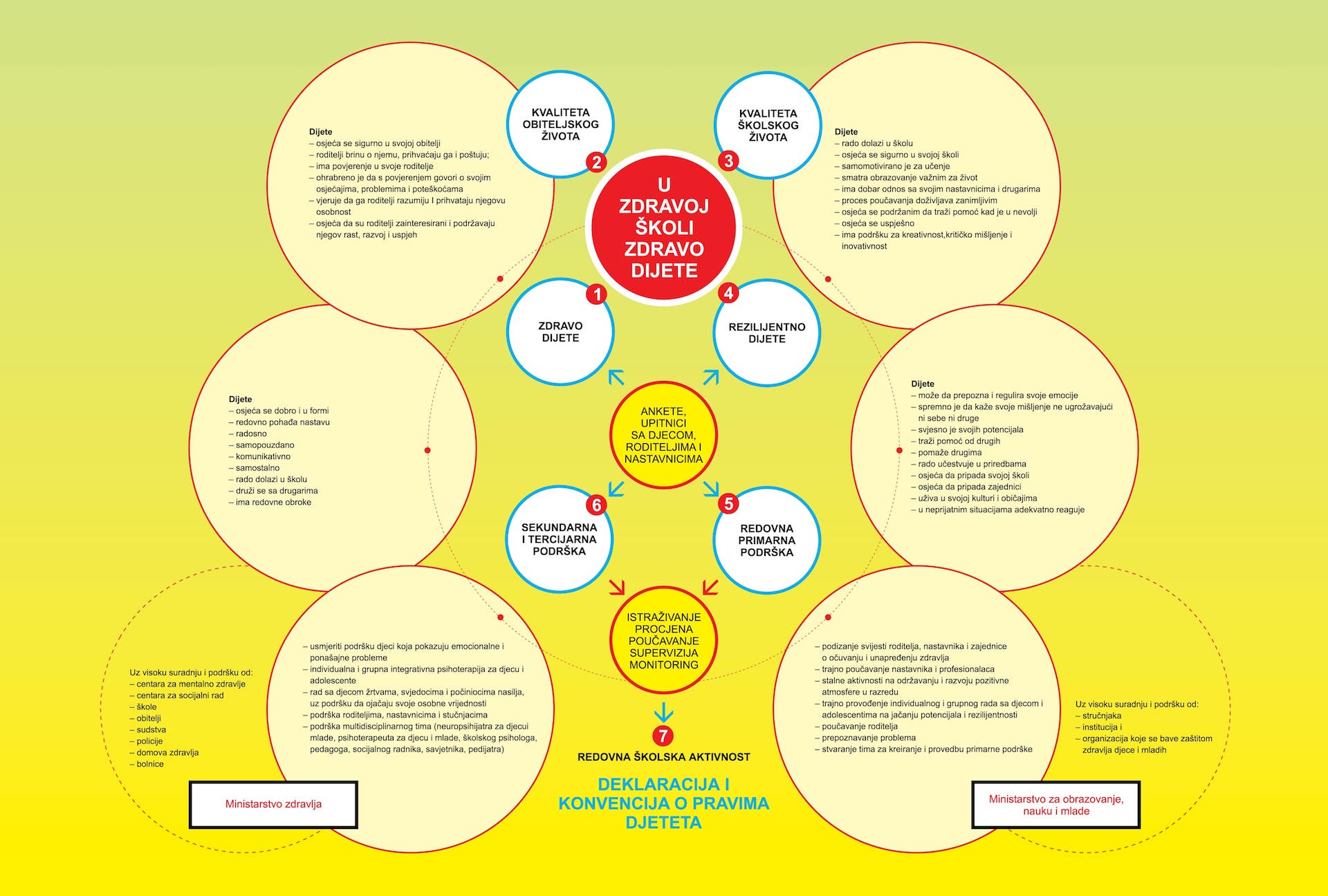https://www.skolegijum.ba/magazin/index/26
With the graphic on the following pages
A healthy child in a healthy school
Marko Ban
Why is the quality of school life important for a child’s health? How to make that life a factor in a child’s successful development?
How to develop children in a society of rapid change, insecurity and uncertainty by living their potential in harmony with themselves, others and technology
without coming into states harmful and limiting to themselves and others?
The path to answering this question leads through the answers to these two:
What creates health and what are the determinants of health in children and adolescents? What are the protective factors and protective processes that go in the direction of health?
These answers were offered by the research of Dr. Mirela Badurina conducted on a sample of children and young adolescents aged 10 to 15, parents and teachers, from 13 primary schools, a total of 1427 participants.
The quality of family and school life, as well as the capacity for resilience, have been recognized as important determinants of health, on the basis of which an integrative concept of a child’s health development perspective is presented.
The research will be published in a book that will be published soon.
Lexicon of basic concepts:
Resilience – the ability of an individual to creatively adapt (consciously find the best path to psychological, social, cultural and physical resources) so as to maintain their health in moments of exposure to significant adversity (Ungar, 2012). In our context, resilience is defined as a dynamic process of creative adaptation in highly stressful circumstances that leads to health (Ungar, 2012).
Quality of family life – a set of positive and negative experiences in the family, general satisfaction of the child with the family environment, parental behavior (acceptance / rejection, control / neglect), perception of the quality of attachment to parents in relation to which styles of attachment are created.
Quality of school life – a set of positive and negative experiences in school, and other feelings related to specific areas and consequences of school life (Leonard, 2002). The general experience of quality of school life refers to general positive and negative feelings towards school, while specific areas of school life include the quality of student-teacher relationships, student-peer relationships, student-to-school relationships, perceptions of the importance of schooling for life, in school, and a sense of self-motivation to learn (Williams and Batten 1981, Pang, 1999, according to Žganec 2009). l
Chart


